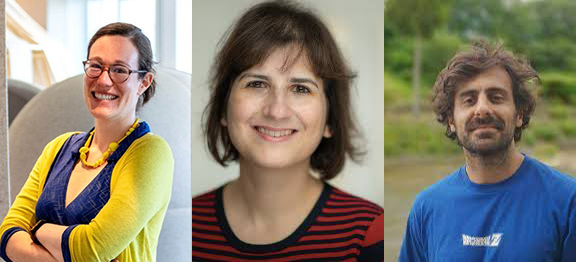Prestigious European grant for three UM researchers
Three researchers from Maastricht University (UM) will receive a prestigious ERC Starting Grant from the European Research Council. This will enable them to set up a scientific research team in the coming years for studies on computer models simulating the human body, food supply in relation to urban poverty, and enforcement of European migration law. The three Maastricht scientists will receive €1.5 million each. Their funding is part of the EU Horizon Europe programme.
Lilian Tsourdi, associate professor at the Faculty of Law, receives an ERC Starting Grant for her project SoftEn (Soft Enforcement of EU Migration Law). This project introduces soft enforcement of EU migration law as a new area of research in which both legal and political scientists will be active. Migration is a salient issue for the EU and major changes are visible in how EU migration law is implemented and enforced. Traditional methods, such as legal actions by the European Commission against Member States, are reaching their limits. Soft enforcement is becoming a flexible and politically attractive alternative. For example, human rights offices have already been established within EU migration agencies using new Ombudsman-like processes for administrative accountability.
Aurélie Carlier, associate professor at the MERLN Institute (FHML), will also receive an ERC Starting Grant. She is developing mathematical models that will increase the fundamental understanding of all kinds of processes in the human body. ‘I am really excited to kick off this project as it will allow me to develop cutting-edge tools to build computer models in an automatic way and create a detailed computer model of the kidney. By simulating various scenarios with this digital kidney, I hope to explore how the kidney removes medications and how this process differs in patients with conditions like reduced kidney function.”
Filippo Oncini, associate professor at the Maastricht Sustainability Institute (SBE), has been awarded an ERC Staring grant for his project ‘FOOD CHARITIES - Beyond the breadline: Charitable food provision and survival strategies of the urban poor in a comparative perspective’. Oncini has the necessary expertise in this branch of research. Ever since his PhD in Italy, he has been working on the topic of social inequality in relation to food consumption. Previously, he led a project on urban poverty and the use of food banks in and around the city of Manchester in the UK. This new study is a natural extension of his previous work.
